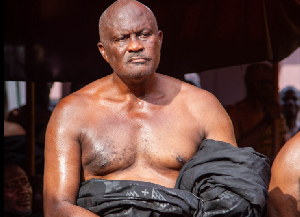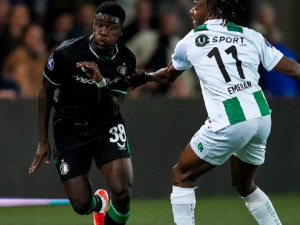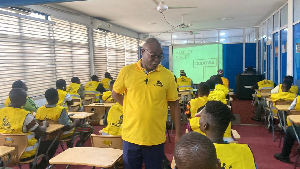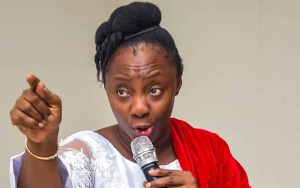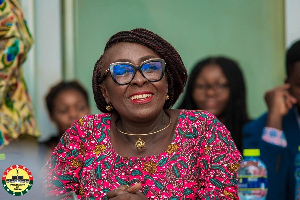Dietrich Bonhoeffer at the height of Nazi German asked of German literature, “Do you know a work of literature written in the last, say, fifteen years that you think has any lasting value? I don’t. It is partly idle chatter, partly propaganda, party self-pitying sentimentalism, but there is no insight, no ideas, no clarity, no substance and almost always the language is bad and constrained”.
I have been reminded of this quote as evidence has now increased that the Daily News papers in Ghana have not reformed. They continue to be shamefully projecting the higher bider.
We are all hard pressed to remember reading anything from the public media that has added any value to our country. Even the well intentioned are shoddy and lacking in meaningful quality. What is worse is that the men and women who work there are complicit in this charade. They are to all intents and purposes agents of poverty. We should all take interest in repairing our public media because its behaviour impacts on our social and economic progress as a country.
The media is a cardinal part of society because it has the ability to leverage its power to dictate and direct governance outcomes through its “soft power”. It’s actions affects the scale of poverty by dictating the level of transparency and accountability in Ghana. If the press was free we would for example expect a high degree of information compared to a government controlled media. The best way to encourage corruption is to ensure government owns the television, heavily regulates local radio stations and has a strangle hold over the printed press. Empirical evidence shows that corruption is lower when the press is free.
The media also influences public opinion and legitimises public policy direction. As the media takes central place in our society, it increasingly acts as a key driver of the social narrative. The place of truth in Ghana is increasingly been eroded and what has begun to emerge is a contest of narratives. In an era of public relations and “official spokespersons”, it is now about who controls the media story rather than the veracity of what is being propagated. As Joseph Goebbels the Propaganda Minister for Adolf Hilter’s Nazi Germany is reported to have said “If you tell a lie big enough and keep repeating it, people will eventually come to believe it”.
More information means more people have less time to sit and digest all the data. They now look to the media to interpret the very meaning of issues reported by the media!. In our country Ghana,this often means that the person who literally shouts loudest on an issue drives the policy agenda. Reason and evidence rarely plays any part. The media is therefore not a neutral agent.
To put it more starkly, if tomorrow the large majority of the Ghana media (both public and private) decided that Ghana is indeed a poor country and there needs to be urgent policy change, and they spread this message to our rural areas and kept repeating it day in and day out, the chances are that the public will come to believe the new narrative. If the media was convinced that there’s no justice for the poor, the public will follow suit. Information is a key ingredient in demanding change, that’s why governments around the world spend huge amounts of money and other resources trying to control mediums that supply it.
Of course media influence is not unidirectional – it also potentially acts as a mirror of society. But we have to remember that the degree to which the media reflects society depends on the extent to which the underlying incentives forces media houses to reflect society’s preferences. Those incentives depend on who media sources ultimately regard as their “sovereign”.
A key tenet in economics is that in a perfectly competitive environment there’s consumer sovereignty. The consumer is king. In such an environment ordinary consumers dictate the direction of production through their purchasing power. Unfortunately, in Ghana media production is heavily funded and influenced by Government. Much of the print media product is heavily controlled by government and other political entities. There’s no consumer sovereignty because Government not the ordinary Ghanaian consumer dictates significant elements of the media product.
But how can this be? One of the reasons is what a friend has called “rogue journalism”. One of the reasons why corruption is so insidious and difficult to fight in Ghana is that journalists are actually some of the most corrupt people. Stories abound of journalists being bribed and failing to report matters properly. Though many of our politicians are devilishly corrupt, they feed on a clique of corrupt journalists in the public media who they reward with cash, promotions or political appointments for protecting them from scrutiny. In fact the public media is now full of state agents spying on independent thinkers within their circles who refuse to compromise professional ethics.
Ibrahim Hardi,contact 0208235615,Email;bigkolaaya@yahoo.com
Opinions of Sunday, 7 February 2016
Columnist: Hardi, Ibrahim






